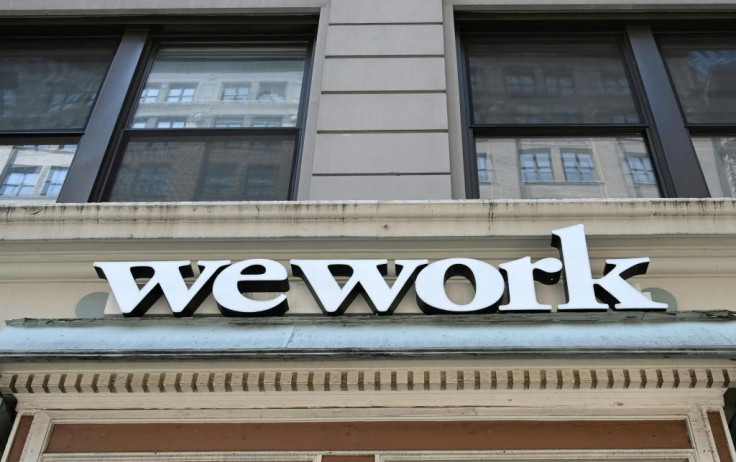WeWork Bankruptcy a Warning to Others – What Can Be Learned
The loose culture that characterised WeWork should have served as an ominous warning sign but the board clearly missed or ignored it.

Shared office space company WeWork has filed for Chapter 11 bankruptcy this week, sealing what seems to be a sad end for a company that once held tremendous promise.
The company was once considered the 6th most valuable startup in the world with an eye-watering US$47 billion private valuation, but it imploded quite spectacularly under the weight of questionable behaviour and spending at the company, mounting debts, and a failed IPO.
Co-founder and former chief executive, Adam Neumann, expressed "disappointment" over the expected move.
"As the co-founder of WeWork who spent a decade building the business with an amazing team of mission-driven people, the company's anticipated bankruptcy filing is disappointing," Neumann said in a statement.
"It has been challenging for me to watch from the sidelines since 2019 as WeWork has failed to take advantage of a product that is more relevant today than ever before," he added. "I believe that, with the right strategy and team, a reorganization will enable WeWork to emerge successfully."
Neumann stood at the helm of WeWork from its founding in 2010 and oversaw the office-sharing company's rise to its astronomical market valuation.
In 2019, the company's largest investor, SoftBank, took control of the struggling company, infusing it with $8 billion. Neumann's exorbitant spending and controversial behaviour aside, he was provided with a golden parachute worth close to $1 billion.
WeWork's current CEO, David Tolley, expressed optimism Monday that the company's bankruptcy will lead to a fresh start.
The company said it would remain open and operational as it renegotiates its leases and debt obligations. It also announced Monday that investors holding 92% of the company's secured debt have agreed to adjust the terms of their loans to help the company remain in business.
"Now is the time for us to pull the future forward by aggressively addressing our legacy leases and dramatically improving our balance sheet," said Tolley. "We remain committed to investing in our products, services, and world-class team of employees to support our community."
"We defined a new category of working, and these steps will enable us to remain the global leader in flexible work," he added.
The WeWork saga provides essential lessons for both entrepreneurs and investors. One key takeaway is the importance of sustainable growth; companies should be wary of expanding too quickly at the cost of profitability, as a focus on long-term financial health is crucial.
Adaptability is another crucial lesson here. Businesses need to remain flexible and willing to pivot their strategies in response to shifting market dynamics, a failure of which was a significant factor in WeWork's decline.
Cash flow management is also highlighted as a vital area for startups and expanding businesses, with WeWork's liquidity crisis underscoring what can happen when cash burn is mismanaged and not carefully controlled. Hard-partying executives (as highlighted in the movie "The Wolf of Wall Street") should serve as a red flag to investors.
Together with these steps, there is a need for robust corporate governance and an emphasis on effective checks and balances within rapidly growing companies.
Companies aiming to avoid the pitfalls that beset WeWork should take a multifaceted approach to business strategy and management. A key element is prioritizing sustainable growth over rapid expansion, ensuring that growth targets align with market demand and the company's capacity to deliver.
Growing too fast is a sure sign of possible failure and a known Achilles heel for many companies. The foundation of this sustainable approach is a sound and scalable business model, clearly outlining paths to profitability and key revenue streams, while growing slowly and steadily.
Alongside financial management, robust corporate governance structures must be in place, promoting transparency and featuring a board of directors that brings diversity and experience to the decision-making process. The board must always be aware of the company culture and have eyes and ears within the building to understand what and how decisions are being made. The loose culture that characterized WeWork should have served as an ominous warning sign but the board clearly missed or ignored it.
In addition, understanding customer needs through deep market research helps in shaping services and adjusting to market trends. In today's dynamic market, adaptability is crucial, and companies must be prepared to pivot their business models in response to new information and market shifts.
The cultivation of a company culture centred on performance, accountability, and a rejection of hype sets a tone of professionalism and realistic expectations internally and externally. Valuations should reflect these principles, grounded in the company's actual performance rather than speculative metrics.
Keeping a customer-centric focus ensures that the business maintains a loyal base, providing stability even when market conditions are volatile. Transparent communication with stakeholders regarding business strategies and outcomes builds trust and ensures that everyone has accurate expectations.
While innovation is essential for staying competitive, it must be balanced with practical feasibility assessments. Companies should test new ideas through pilot programs before large-scale rollouts. A comprehensive risk management strategy that identifies potential risks and prepares for them is the final piece of the puzzle, enabling companies to navigate uncertain waters with greater assurance.
This sad saga underscores the need for thorough due diligence by investors, who should rigorously assess the fundamentals of a business and its path to profitability before investing significant capital, a step that could have mitigated the scale of WeWork's problems.

Daniel is a business consultant and analyst, with experience working for government organisations in the UK and US. On his free time, he regularly contributes to International Business Times UK.
© Copyright IBTimes 2025. All rights reserved.





















